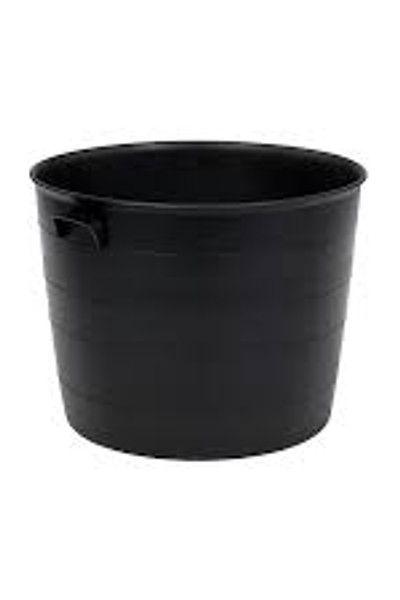4 ways to recycle plastic plant pots – clear out garden mess and stay green in the process
How to sustainably dispose of old, unused pots

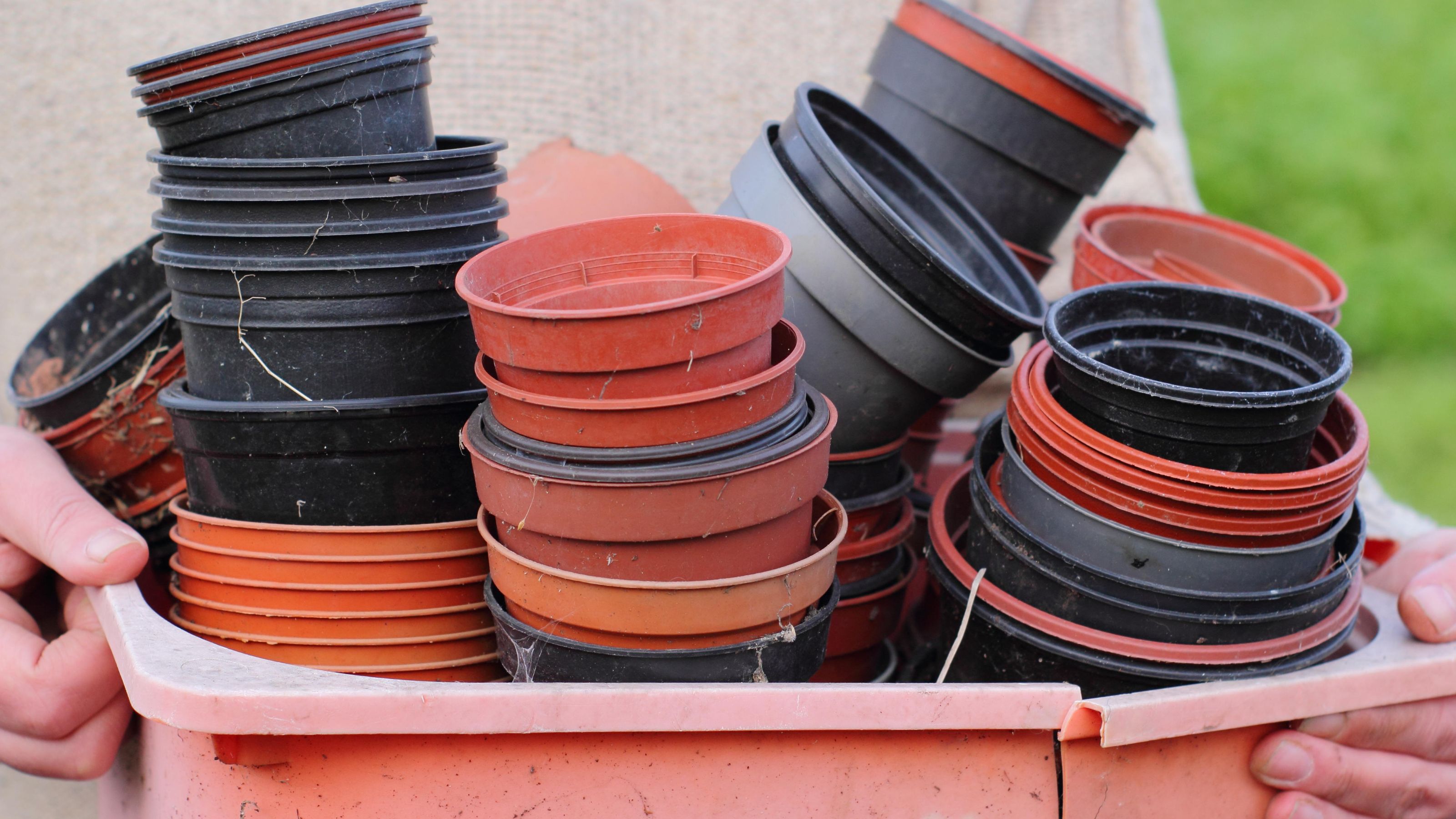
Sign up to our newsletter for style inspiration, real homes, project and garden advice and shopping know-how
You are now subscribed
Your newsletter sign-up was successful
Plastic plant pots are a ubiquitous item in the garden, regardless of size or style, but they're one of those items that you may be unsure of how to dispose of once broken or if you no longer have use or space for.
Whether you have a container garden or buy new plants in pots for your beds, you no doubt have some teetering stacks of pots collecting cobwebs, so learning how to recycle plastic plant pots will not only help you to declutter your garden but will also reduce the amount of landfill you produce when gardening.
According to The Green Centre, 'there are an estimated 500 million plastic plant pots in circulation every year.' With such an abundance of pots – often deemed single-use – it makes it all the more important that these plant pots do not end up in landfill.
How to recycle plastic plant pots
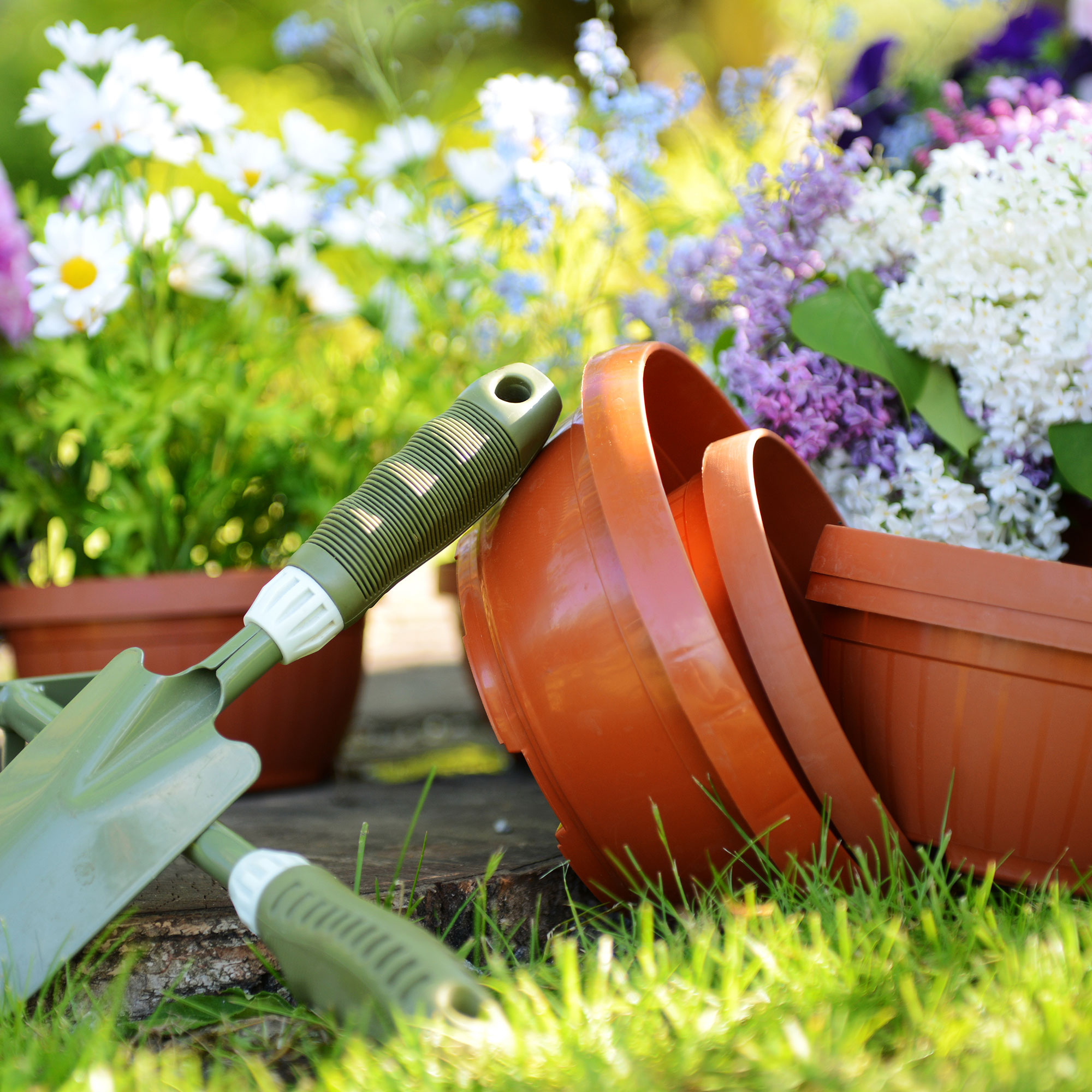
While there are plenty of upcycling ideas for the garden that give you ideas of other ways to use your garden pots – for example, using your plant pots as a kitchen utensil holder – plastic plant pots and seed trays are less adaptable than terracotta designs.
Plus, if you've bought a lot of bedding or plug plants or seedlings, you can quickly become inundated with piles of unwanted plastic.
So if you're clearing out your shed ideas and haven't got enough shed storage ideas to accommodate your pots, then it's time for a clear-out.
1. Local council collection
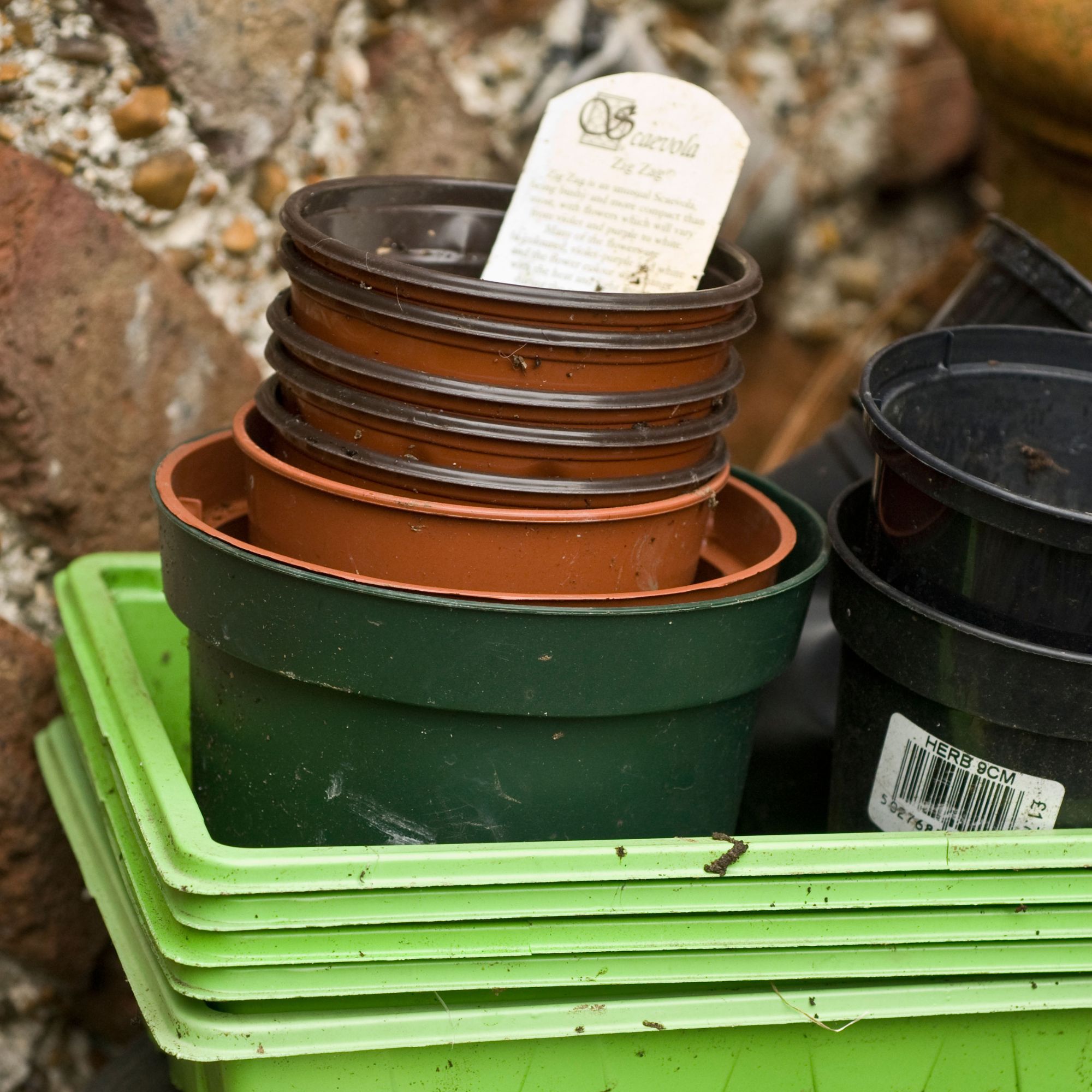
Some councils allow you to recycle plastic plant pots at kerbside. However, many do not offer this service. Your individual council website should be able to provide up-to-date information.
Sign up to our newsletter for style inspiration, real homes, project and garden advice and shopping know-how
However, kerbside recycling, where offered, only applies to those made from green, brown or taupe plastics. The Recycle Now website explains, that 'currently, black plant pots contain pigments which make them undetectable to the sorting machinery used to sort plastics, so need to be placed in the waste bin.'
There is hope, however, as the HTA recently announced that 'starting in 2026, all non-black, recyclable PET or PP plastic plant pots will be accepted in household kerbside recycling in England' meaning it'll be even easier to recycle your plant pots.
2. Dobbies Pot Return Service
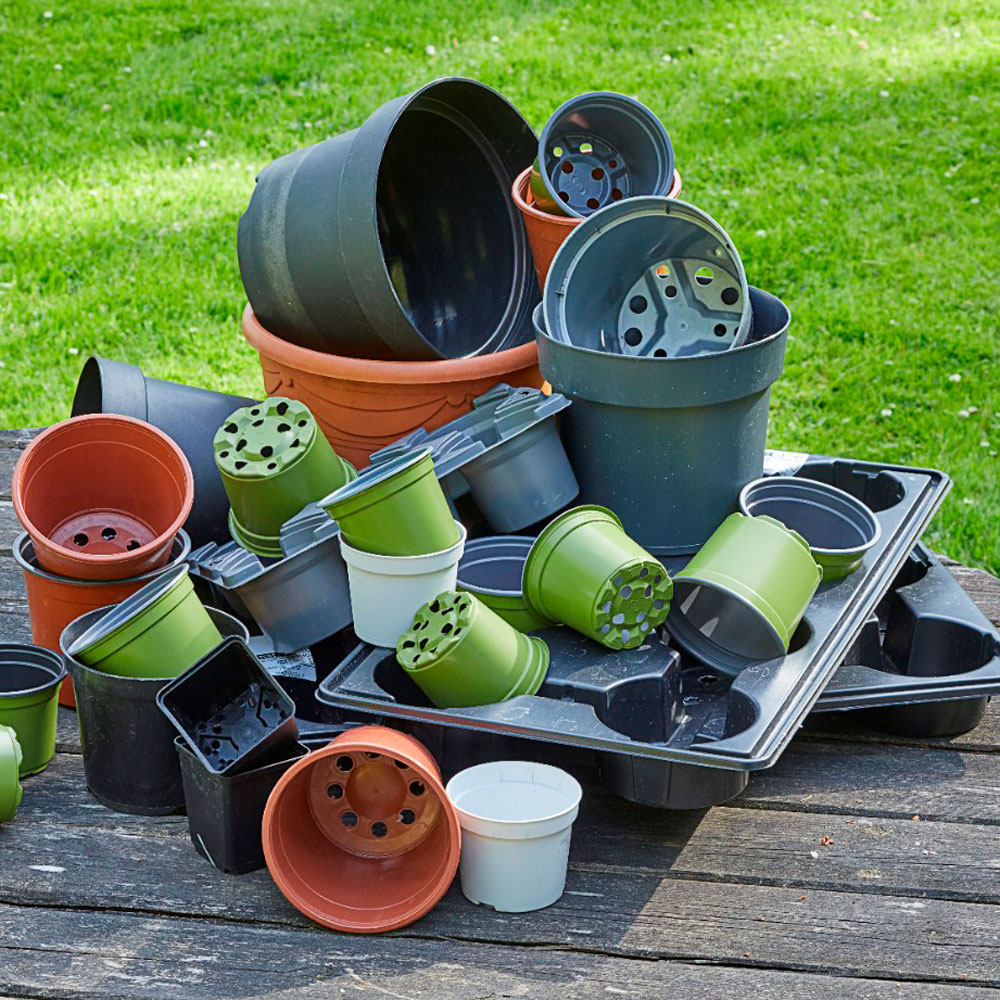
Garden Centre Dobbies has partnered with plant pot manufacturer elho to recycle plastic plant pots as part of its pot recycling scheme. In 69 of its garden centres, there will be a large elho branded bin in which you can deposit your unwanted plant pots as part of Dobbies' plastic pot and tray return service.
'We can take all shapes, sizes and colours of pot or tray, as long as they're plastic and not polystyrene. Please wash them before you bring them to us,' says experts at Dobbies.
3. B&Q Pot Recycling
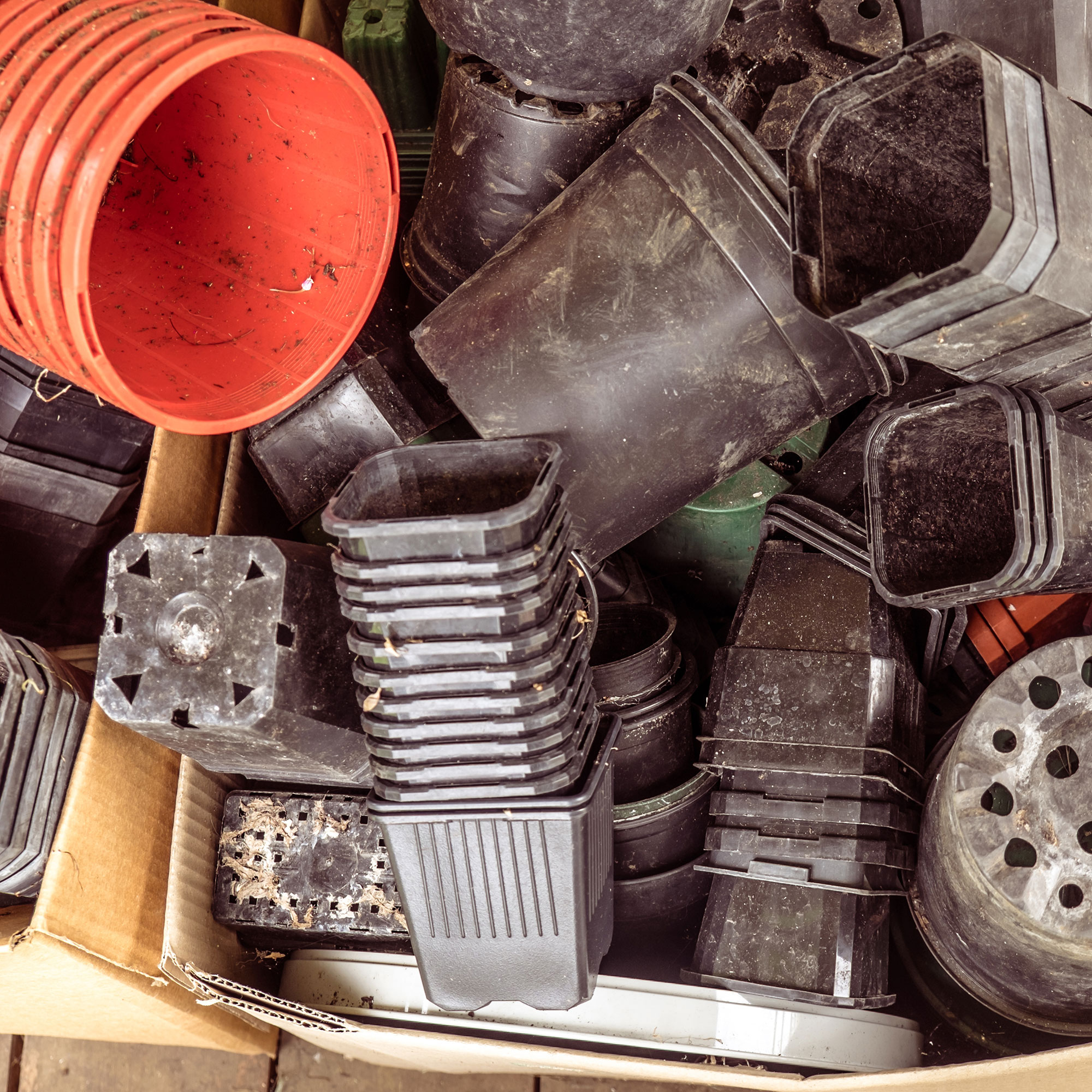
In addition to helping us with all our difficult and easy DIY projects, B&Q also offer a method to recycle plastic plant pots with plant pot drop-off points at over 100 of its stores.
The unwanted plant pots and seed trays are then recycled and used to create brand new durable planters and pots – including its Blacksmith Black Plastic Round Planter which costs £4. The pot can be used both indoors and out, is weather-resistant and produced in the UK.
4. Offer for free

One man's trash is another man's treasure!
List your unwanted plant pots on a local retail site such as Freecycle or Facebook marketplace. Alternatively, get in touch with your local allotment association or community gardening project and see if anyone could make use of your unwanted pots.
So whether you want to give away, your council will accept them or you can drop them off at a local store, there are several easy ways to get rid of the clutter of plastic plant pots in your garden shed.

Holly is one of Ideal Home’s content editors. Starting her career in 2018 as a feature writer and sub-editor for Period Living magazine, she has continued this role also adding regular features for Country Homes & Interiors and the Ideal Home website to her roster. Holly has a passion for traditional and country-inspired interiors – especially kitchen design – and is happiest when exploring the countryside and hills of the Lake District. A keen gardener, she is a strong believer that you can never have too many houseplants.
